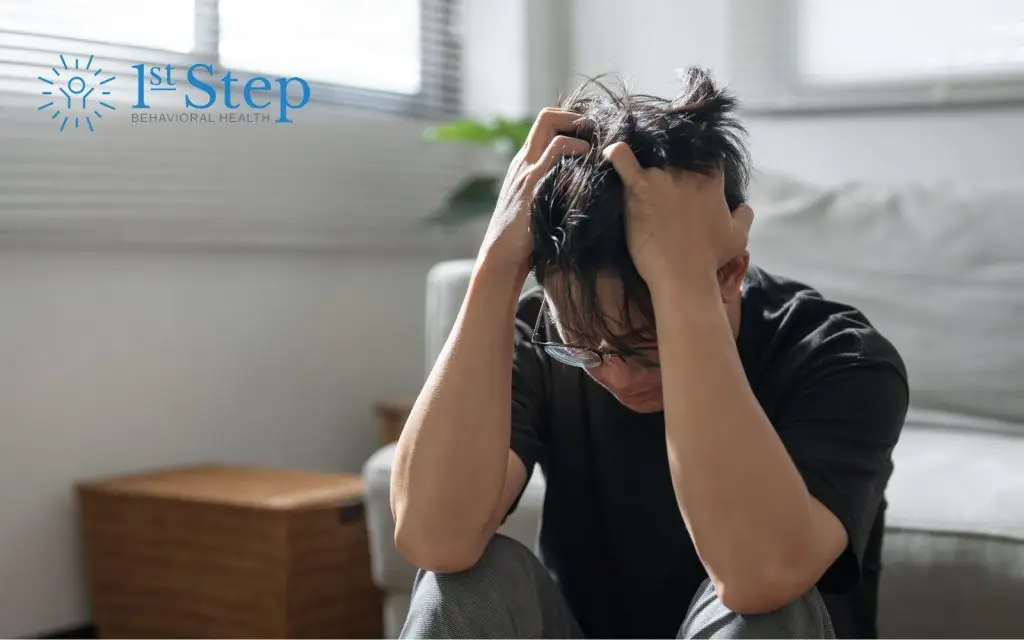Recovering from addiction takes time and dedication, and for some people, recovery is not a continuous journey. Lapses and relapses are common among people who struggle with substance use disorders. The average relapse rate is similar to that of other chronic health conditions such as hypertension; 40–60%.[1]
In this article, you will learn:
- What a lapse is
- What a relapse is
- The difference between lapse and relapse
- What to do if you experience a lapse or relapse
What is a Lapse?
A lapse refers to a brief, momentary, often one-time return to drug or alcohol use. It is a temporary setback in your continuous sobriety, but it doesn’t mean the end of your recovery journey.
An example of a lapse in recovery would be a person who has been purposefully abstinent from alcohol for several months, but slipped up one night, only to wake up the next morning with the urge to stop drinking and continue with recovery.
A lapse can feel devastating, especially if you’ve worked hard to stay sober. However, it doesn’t mean you’re back at square one; instead, think of it as a stark reminder that you must continue treating your condition to stay on the right track.
What is a Relapse?
A relapse describes a return to drug and alcohol use and addictive behaviors. In a full relapse, people may begin using drugs and/or alcohol to the same extent as they were before getting sober.
An example of a relapse would be someone who experienced any period of intentional sobriety before returning to old behaviors, such as drinking several bottles of wine in one setting or beginning to use opioids all day again like one used to before getting sober.
What is the Difference Between a Lapse and a Relapse?
A relapse is more severe than a lapse in terms of duration and scope of drug use. A relapse can last anywhere from one or two days to several months or years. A lapse, on the other hand, is a temporary and one-time “slip.” Individuals who relapse engage in recurring addictive behaviors and substance use, while people who lapse quickly regain control over their recovery.
Although a relapse lasts longer and involves more concerning patterns of substance use, a lapse can have just as serious consequences as a full-blown relapse. A lapse can lead to emotional problems like guilt or shame as well as life-altering consequences like job loss or even an overdose. Both lapses and relapses should always be taken seriously.
What to Do if You Experience a Lapse in Your Sobriety
If you experience a lapse but are highly motivated to avoid using drugs and alcohol again, going back to rehab may not be necessary. Reach out to a sponsor, other members of your support group, and even your counselor or doctor to let the people in your support network know about your lapse. Don’t be afraid to ask for support and accountability from those in your inner circle.
Make sure to evaluate what caused your lapse so you can anticipate future lapses and take action to prevent them. Ask yourself:
- What were you feeling?
- What caused those feelings?
- Where were you?
- Who were you with?
- What were you doing beforehand?
- Is there anything you should be doing for your recovery that you aren’t doing?
After a lapse is also a good time to refine your coping skills. It’s also a good opportunity to learn new ones. Make sure you’re spending enough time on self-care, attending meetings, working your steps, and nurturing your mental health. You may want to attend extra support groups or counseling sessions for a couple of weeks or months to further reinforce your sobriety.
What to Do if You Relapse on Drugs and Alcohol
Depending on the nature of your relapse, going to rehab and getting professional help may be necessary. If you were using drugs or alcohol for an extended period of time, you may be physically dependent and in need of medically assisted detox services in order to quit successfully.
Additionally, going to treatment can provide you with professional guidance so you can analyze your relapse and learn how to prevent another one in the future. Rehab can also provide meaningful separation from triggers which can make staying clean in early recovery easier than it would be on your own.
Key Relapse Prevention Strategies
Addiction is a chronic disease that requires lifelong management. It is crucial to maintain a healthy lifestyle and be prepared with strategies to cope with cravings and prevent relapse, such as:
- Relaxation techniques
- Mindfulness meditation
- Yoga or exercise
- Eating a healthy diet
- Getting enough quality sleep
- Working with a sponsor
- Going to meetings
Find Help Now
Whether you’ve experienced a relapse or know someone who has, it’s important to seek the help that you need. At First Step Behavioral Health, we recognize the chronic nature of addiction and the possibility of relapse in recovery. That’s why we use an evidence-based, cognitive behavioral approach known as relapse prevention therapy to arm clients with the tools and support they need to stay sober from alcohol or other drugs.
Relapse prevention plans help you identify patterns in yourself, be more confident in your ability to maintain sobriety, and equip yourself with a wide range of coping strategies and resources. We help personalize every person’s relapse prevention therapy and plan so that they feel confident in their ability to navigate what’s next once they complete their treatment.
To learn more about our addiction treatment programs or to get started with a confidential, risk-free assessment, please contact us today.
References:
- National Institute on Drug Abuse (NIDA): Treatment and Recovery

